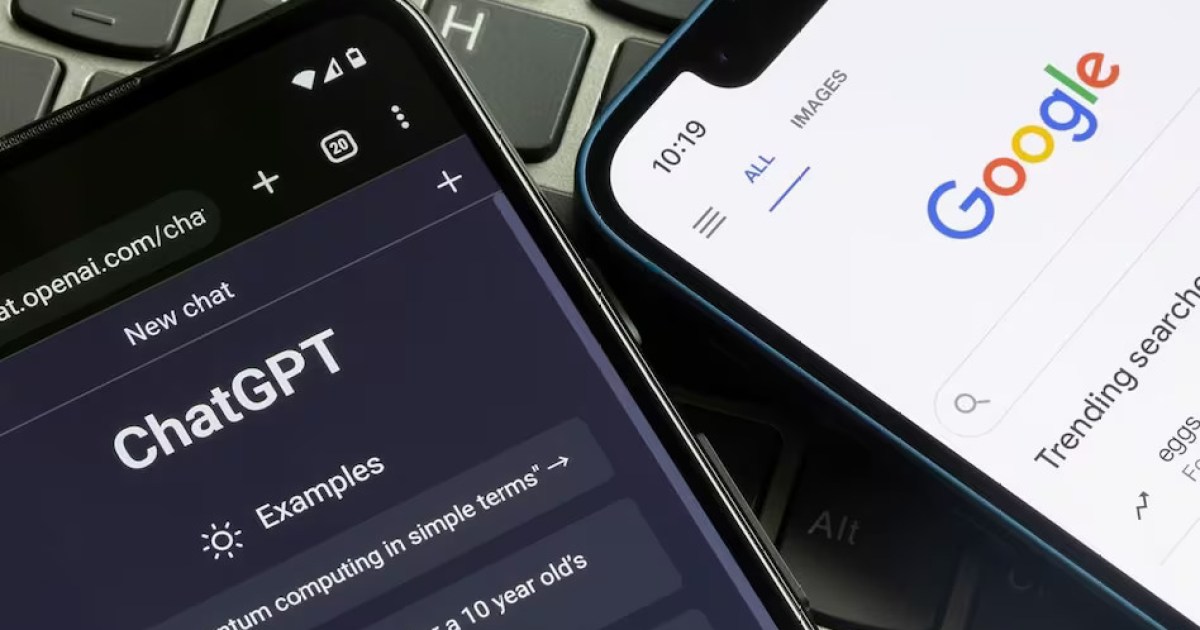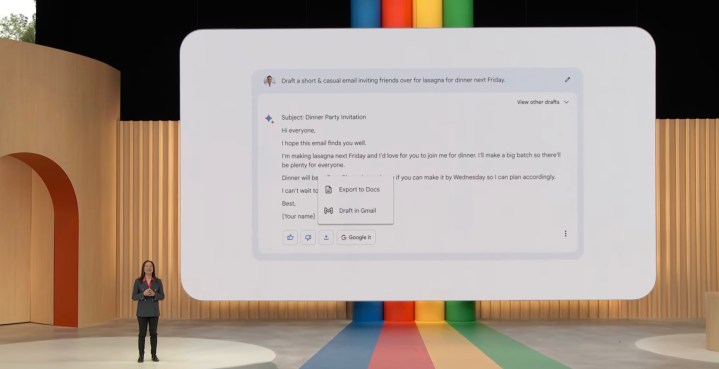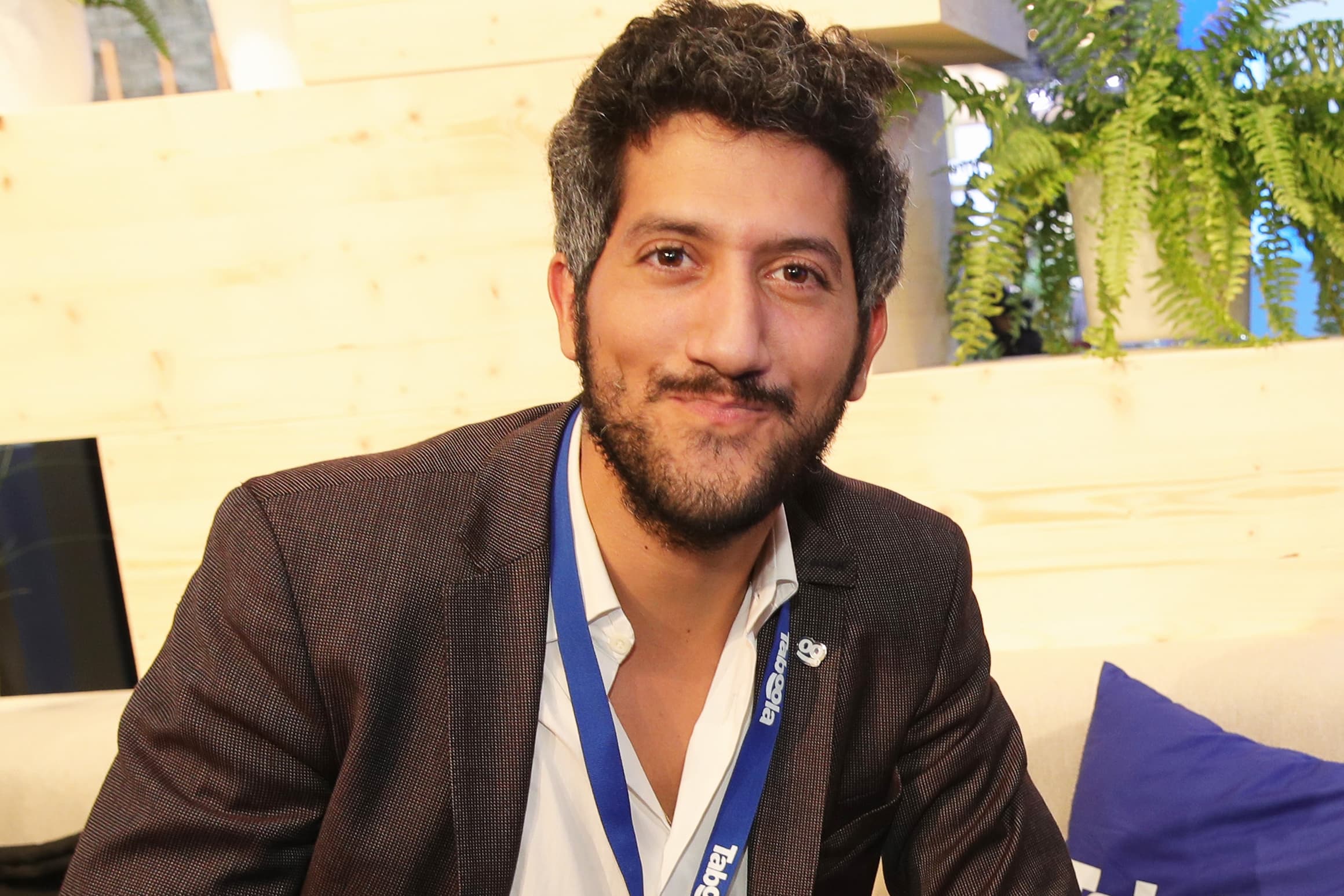All of the internet now belongs to Google’s AI
Google has updated its privacy policy to give itself free range over your content to benefit building and improving its AI tools.


Google’s latest update to its privacy policy will make it so that the company has free range to scrape the web for any content that can benefit building and improving its AI tools.
“Google uses information to improve our services and to develop new products, features, and technologies that benefit our users and the public,” the new Google policy says. “For example, we use publicly available information to help train Google’s AI models and build products and features like Google Translate, Bard, and Cloud AI capabilities.”
Gizmodo notes that the policy has been updated to say “AI models” when it previously said, “for language models.” Additionally, the policy added Bard and Cloud AI, when it previously only mentioned Google Translate, for which it collected data.
The privacy policy, which was updated over the weekend, appears especially ominous because it indicates that any information you produce online is up for grabs for Google to use for training its AI models.
The aforementioned wording seems to describe not just those in the Google ecosystem in one way or another but is detailed in such a way that the brand could have access to information from any part of the web.
Major issues surrounding the mass development of artificial intelligence are questions about privacy, plagiarism, and whether AI can dispel correct information. Early versions of chatbots such as ChatGPT are based on large language models (LLMs) that used already public sources, such as the common crawl web archive, WebText2, Books1, Books2, and Wikipedia as training data.
Early ChatGPT was infamous for becoming stuck on information beyond 2021 and subsequently filling in responses with false data. This could likely be one of the reasons Google would want unfettered access to web data to benefit tools such as Bard, to have real-world and potentially real-time training for its AI models.
Gizmodo also noted that Google could use this new policy to collect old, but still human-generated content, such as long-forgotten reviews or blog posts, to still have a feel of how human text and speech is developed and distributed. Still, it remains to be seen exactly how Google will use the data it collects.
Several social media platforms, including Twitter and Reddit, which are major sources of up-to-date information have already limited their public access in the wake of AI chatbot popularity, to the chagrin of their entire communities.
Both platforms have closed free access to their APIs, which restricts users from downloading massive amounts of posts for sharing elsewhere, under the guise of protecting their intellectual property. This instead broke many of the third-party tools that make both Twitter and Reddit run smoothly.
Both Twitter and Reddit have had to deal with other setbacks and controversies as their owners’ concerns heighten about AI taking over.
Editors' Recommendations
OpenAI building new team to stop superintelligent AI going rogue OpenAI reveals location of its first international outpost Google tells workers to be wary of AI chatbots AI ‘godfather’ says fears of existential threat are overblown What is MusicLM? Check out Google’s text-to-music AIFionna Agomuoh is a technology journalist with over a decade of experience writing about various consumer electronics topics…
Senators to get AI lessons ahead of regulation decisions
Senate Majority Leader Chuck Schumer has set up a series of briefings aimed at educating senators about artificial intelligence (AI), insisting that his colleagues must "deepen our expertise in this pressing topic."
The move comes as U.S. lawmakers consider how to regulate the new wave of fast-evolving AI technology behind powerful chatbot tools such as OpenAI’s ChatGPT and Google’s Bard.
These ingenious ideas could help make AI a little less evil
Right now, there’s plenty of hand-wringing over the damage artificial intelligence (AI) can do. To offset that, Firefox maker Mozilla set out to encourage more accountable use of AI with its Responsible AI Challenge, and the recently announced winners of the contest show that the AI-infused future doesn’t have to be all doom and gloom.
The first prize of $50,000 went to Sanative AI, which “provides anti-AI watermarks to protect images and artwork from being used as training data” for the kind of large-language models that power AI tools like ChatGPT. There has been much consternation from photographers and artists over their work being used to train AI without permission, something Sanative AI could help to remedy.
The 10 best ChatGPT Plugins you can use right now
ChatGPT is an amazing tool, but plugins make it even more so by unlocking a range of exciting new abilities. From booking a restaurant table for you to custom designing t-shirts based on your prompts, ChatGPT plugins are the future of AI chatbots. Until the next big thing comes along, at least.
Here are some of the best ChatGPT plugins you can use to leverage AI in ways you never even dreamed of.
How to use ChatGPT plugins
In order to run ChatGPT with plugins enabled, you need to be a ChatGPT Plus subscriber. It's $20 a month, but you get priority access to the chatbot so there's almost never any waiting, and you can also use advanced features like the GPT-4 language model, and play with the new web-search capabilities of ChatGPT.

 Kass
Kass 




































